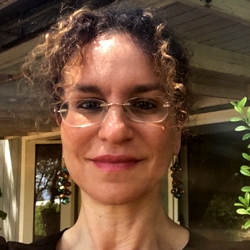

Search Results: emotion
-
Hearing "no" can bring emotional pain, but it can be delivered in a way that minimizes discomfort. We can find the gift in the request, express feelings and needs instead of saying "no," and offer an alternative solution that supports all parties. This approach fosters honesty, respect, and understanding, while setting boundaries if necessary to protect oneself. Clear communication reduces the likelihood of conflict.
-
In our fast-paced, busy lives it is tempting to practice NVC mostly with the left hemisphere of the brain, thinking through the steps quickly without slowing down to connect more deeply with feelings and needs. Don't miss an opportunity to integrate the hemispheres of the brain and the valuable information from the neural networks in the heart and gut.
-
Nonviolent Communication includes a practice of empathy that involves listening for feelings and needs no matter how someone expresses themselves, and reflecting back the feelings and needs when it is helpful to do so. You can reflect back in a traditional NVC manner, or in a more creative way, with metaphors.
-
When avoidance coping or positive thinking sidesteps challenges, internal and external injustice and unrest also rises as we sidestep our values and integrity. It leaves us in sadness and distress. What's unacknowledged impacts ourselves and others undesirably. To live nonviolently we need to be in touch with what's real. With resonance we can more likely be with what's true, and trust our resilience and inner alignment.
-
When you or anyone is upset, what could underneath the trigger? There may be more than is immediately visible. This article invites us to explore what it looks like to inquire deeper, take self-responsibility, examine our assumptions, attachments, interpretations, and "certainties" that could be hidden behind the needs that are aching to be attended to...
-
In listening to what our emotions tell us, and embracing what we do not know, we begin the path of courage. Even though our culture tells us not to, revealing our imperfections is where we can deeply connect. Living our lives more courageously honest, can shift us towards inspiring one another. Read on for how some people experienced this in coming together to transform one woman's heroine addiction.
-
Deepen your connection to life, nurture inner healing, and live more compassionately.
-
These mindful inquiry exercises and tips are for enhancing self-empathy, and empathy for others. Using emotions and needs card decks provided, learn to reflect and enhance trust and connection through intentional practice.
-
What have you lost this year during this COVID-19 pandemic? Are you grieving too? Recognition of loss can helped contextualize our emotions. When we can meet grief with understanding, patience and tenderness, when we create space to mourn our losses -- and to begin to process, heal and metabolize loss. This can help us make sense of change and orient to a new reality. Grief is a longing for what we love.
-
Heal old messages of unworthiness and find choice in moments of reactivity through self-empathy.
-
Anger is an emotion we'd often like to disown! Shantigarbha offers us five tips for "finding the life" in our anger, and ends with a short, guided reflection.
-
We live in a world where there is a lot of anger. It can be a strong and intense emotion that we feel or receive from others sometimes on a daily basis. Whether that's an agitated partner, road rage, or a disgruntled colleague. While we're familiar with this feeling, we're not necessarily well equipped with how to express it in a healthy way. In this month's Life Hack, Shantigarbha takes us through a guided reflection on anger.
-
With these practices make space before reacting to emotion or external stimulus. This can enable your capacity to respond from your self-connection to universally shared values. With practice you can create the capacity to temporarily put impulsiveness aside, in the service of connection with yourself and others, and in service of more informed and effective strategies.
-
Anger is neither good nor bad. When you don't foresee it or you haven't cultivated a relationship to anger, you may behave from it and hurt yourself and others. There are three reasons anger may rise: primitive anger, resistance, and lack of resources. For practicing with these last two types of anger, we'll look at four practices: cultivate awareness, pause and expand, self-care and planning, and allow grief.
-
- Celebrate and nurture your relationship to the Earth — and each other!
- Explore your connections to family, partner, work, nature, self and more
- Discover new ways to grow in community and work together to make this world a better place
- Engage and immerse yourself in NVC while making new friends!
-
Has someone ever talked to you to the extent that you're no longer enjoying it, and you now wonder if they even know you're there? Learn ways to bring in emotional understanding, engage more honestly and open-heartedly, and bridge next steps to the type of conversation that engages everyone's needs.
-
We each have the power to be the creator of our own inner experience.
-
Do this three-step roleplay with someone to shift the emotional charge (e.g. upset, irritation, etc.) that you experience when you hear a certain tone of voice.
-
We can see anger as an alarm or signal that can inform us that unmet needs require attention, or that we hold judgements. We can shift our own anger in several healthy ways: get present, identify the stimulus and any judgements or unmet needs, look for ways to meet our needs, make requests that support our needs, express our needs to ourselves and appropriate others, and more.
-
Heal, reconnect and cultivate presence through self compassion as you restore wholeness.

Quick Links
Subscription Preferences
Stay In Touch!
Looking for ways to keep up with NVC Academy news, get special offers, free resources, or words of inspiration? Here are five ways to stay engaged:




















